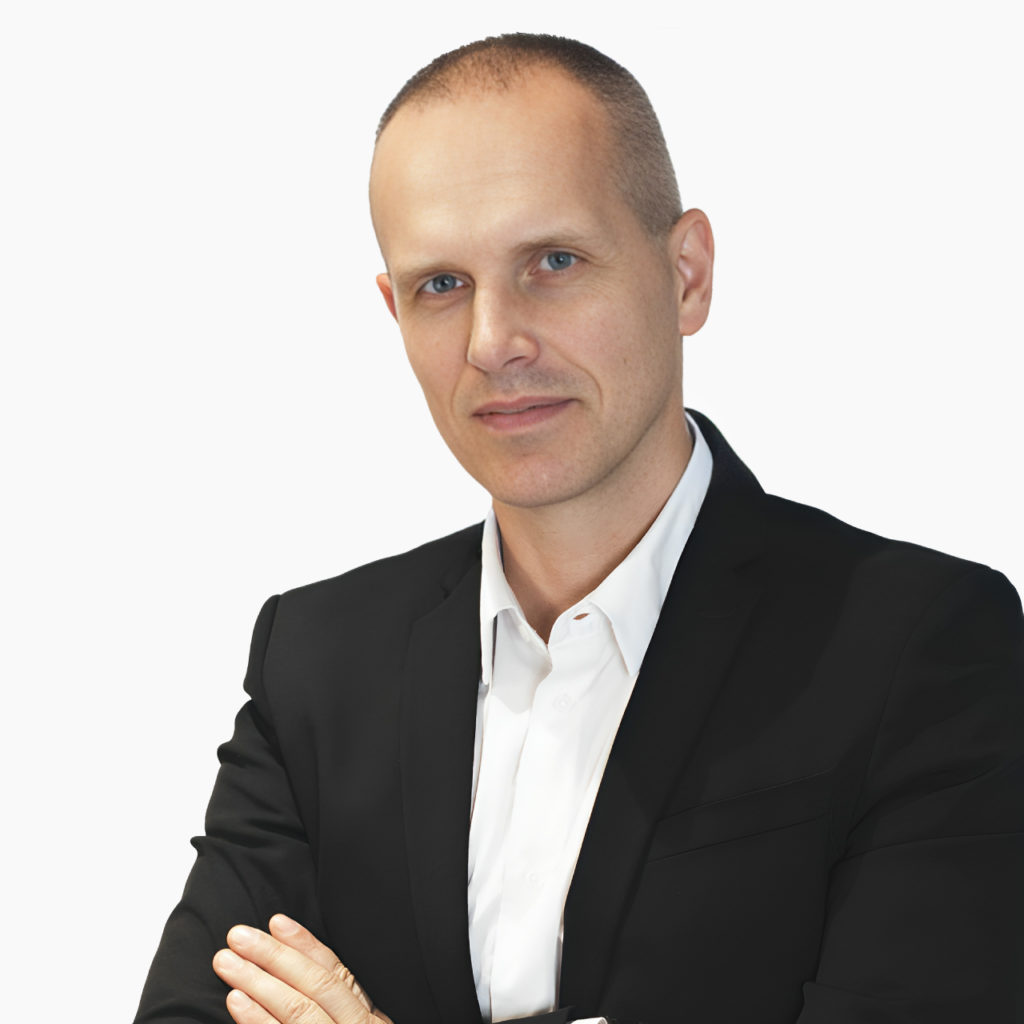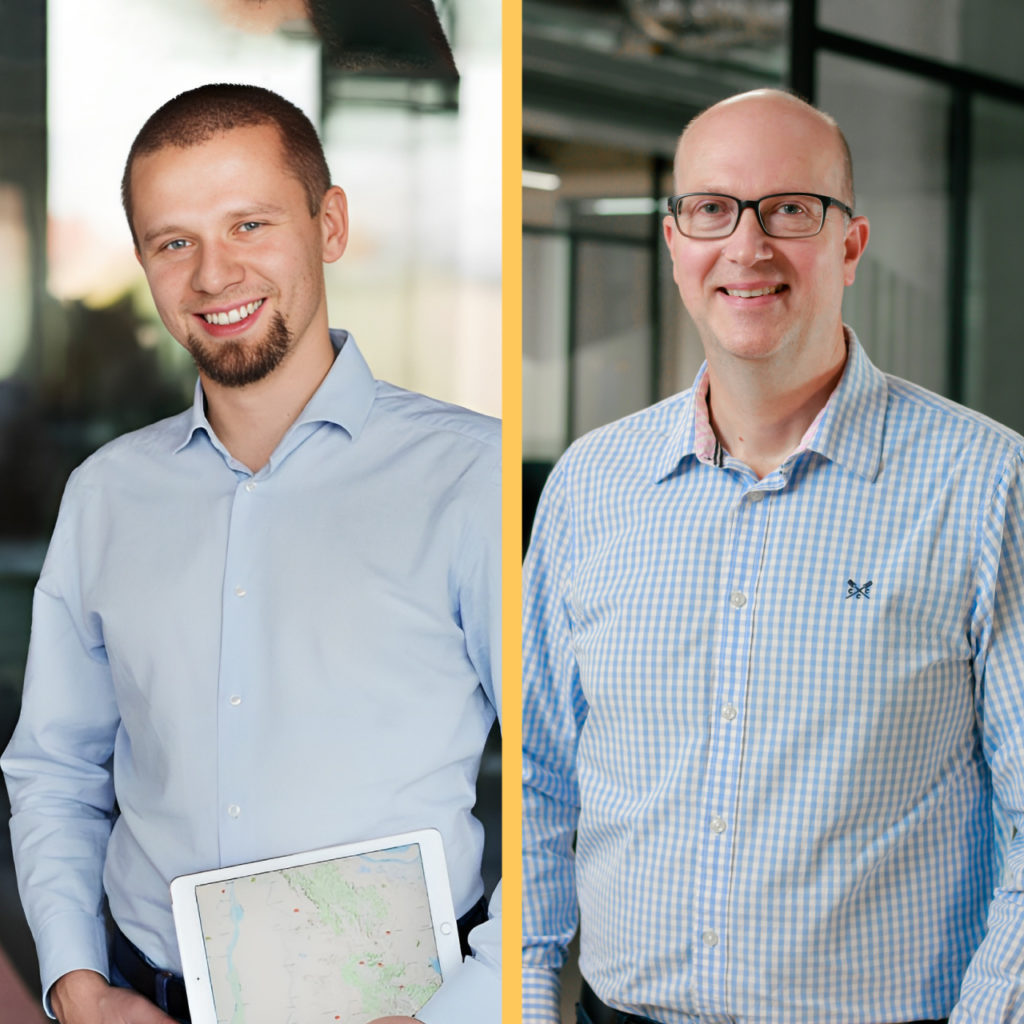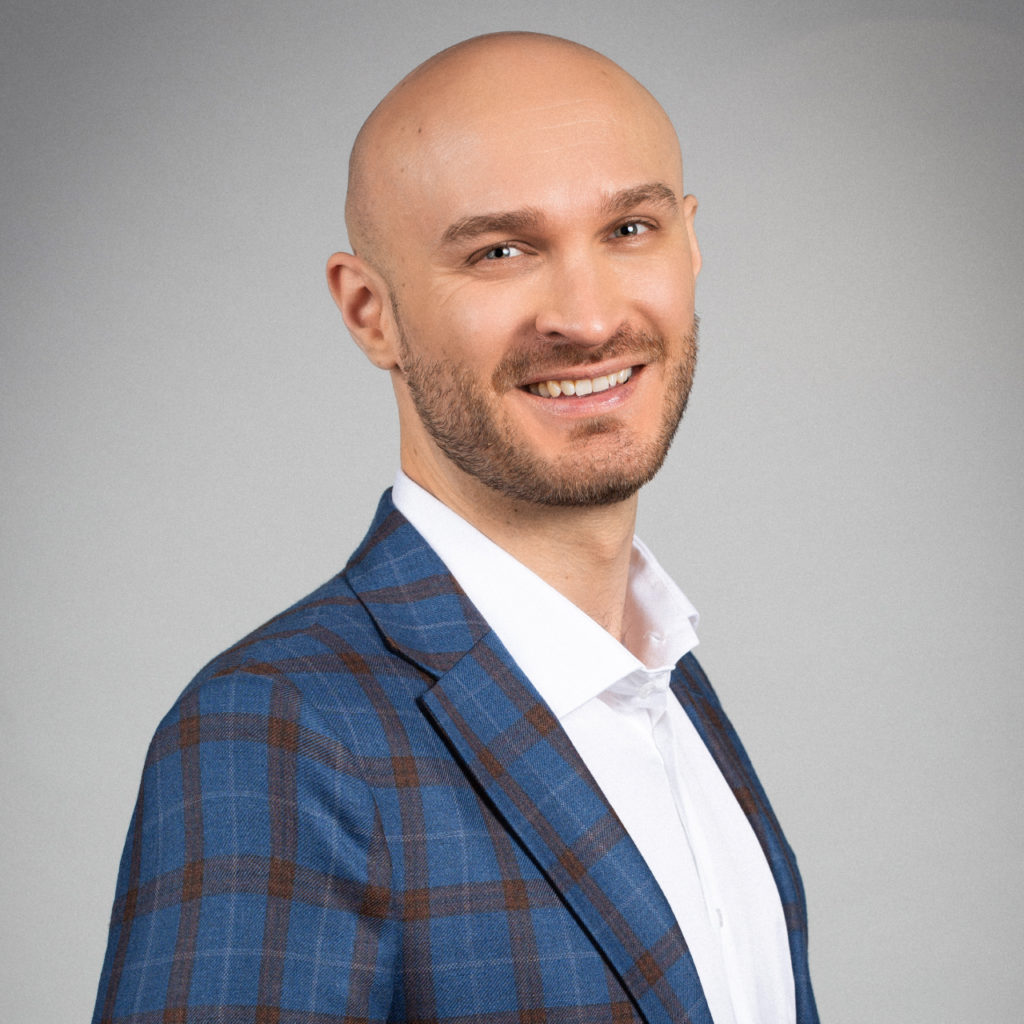Another great year for Spyrosoft – Interview with Konrad Weiske
Another great year for Spyrosoft has ended. In 2022, we continued our journey as a supplier of custom software for clients from all over the world, with over 1,400 employees onboard and listed on the Warsaw Stock Exchange. But what challenges are waiting for the IT industry in the future? We met with Konrad Weiske, Spyrosoft CEO, to discuss his thoughts on that and the company’s plans for 2023. Below you may read the first part of the interview.
Recent years have been rough for the global economy, even though they have brought us many successes. What was 2022 like for the Spyrosoft Group?
Konrad Weiske (KW): It was really good! The company has continued developing. We employed many new people, acquired new clients, and our results have been getting better and better. Despite the difficult situation overall, it has been yet another great year in our company’s history. However, it must be emphasised that we have been so successful again, thanks to the hard work of each and every one of our employees.
What do you consider our most tremendous success in 2022?
KW: There is no greatest success or most important thing. It cannot be said that, for example, hiring new employees was less important than entering the Warsaw Stock Exchange, or vice versa, that the stock exchange was less important than hiring people. Was opening an office in Krakow or Timisoara important? Yes, but I will not say that it was the most important thing. We managed to achieve a lot of our goals. Amongst others, we’ve moved to several new offices, launched Spyrosoft eCommerce and Spyrosoft Connect, and welcomed Better Software Group in Spyrosoft Group. Our greatest success is, therefore, how many hits we have achieved – and in various fields. I must admit that when we summed up last year, I was surprised there were so many of them!
How do you plan to maintain the current market position? What are the main goals this year?
KW: Our strategy for 2022-2026 contains our main goals, and they do not change yearly. It is our long-term action plan that involves objectives such as employing 3,000 associates (including contractors, subsidiaries and joint ventures), maintaining organic growth on an average level of 30%, and EBITDA of 11-14% till 2026.
![[blogimage]Konrad-Weiske](https://spyro-soft.com/wp-content/uploads/2023/03/mbi8889-1_2-1024x683.jpg)
Are there any core services the company will focus on in 2023?
KW: We have a vast range of services, and we focus on each of them. However, there is one crucial thing that we actually plan to focus on this year. As a company, we create products for clients who then either use them themselves or resell them. Each of these products must be maintained by our IT department. We maintain the product in the cloud, check the application, correct errors, add new functionalities, optimise costs, and migrate data if necessary.
Recently we have also begun to provide support to end users of the product. It naturally complements our other services because since we created the product, we know how it works and how to fix or improve its operation. However, this type of customer support is essential not only for the client but also for us. When users contact us and complain about things they do not like, things that are not clear to them, and something that they believe should be changed, we can create a database of such cases, analyse the product, and improve the next iteration to make the user experience even better. This is a fairly standard process for larger companies, but most of our clients are medium-sized companies that need the budget for such activities.
Therefore, it is beneficial to them that we do it, and we can include 2-3 people in the development maintenance team who are dedicated to customer support. When the team is planning a subsequent iteration of the product, these people may come in and provide advice on what needs to be improved because they use not only a given product themselves but also aggregate data from hundreds of recipients. Hence, they have an in-depth understanding of it, as well as the actual user experience, and are able to advise developers on what to focus on. It is our plan to expand services in this area in 2023.
![[blogimage]-Spyrosoft_board](https://spyro-soft.com/wp-content/uploads/2023/03/mbi9125_2-1024x683.jpg)
With which leading technologies do we see potential growth and investment opportunities?
Spyrosoft will definitely continue focusing on what we already do because we do it well, and there is a demand for it. We will also strengthen the newest branches of our activity, e.g. low-code and no-code platforms. We already have some experience here, but there is certainly a lot of room for development.
Another thing is cybersecurity: everyone has heard of it, and everyone thinks they know what it is. But – in general, as an industry – we have a massive problem with adopting cybersecurity tools. People who are responsible for buying such tools know that they are necessary. Still, they do not know how to determine whether a given tool is enough, whether it will work appropriately in a given environment, and whether its price is right, so they sometimes put off the purchase decision.
We certainly want to work on that. And, of course, Salesforce and Magento platforms. Their importance will certainly grow, so we continue to invest in the development of operations related to them.
Do we plan to start activities in new sectors?
We have excellent development opportunities in new areas. We have started operating in the Retail, Robotics, and Legal Tech sectors relatively recently, and there is still much work ahead. Of course, we will include more industries in our portfolio over time. Still, for now, we are focusing on making our business credible in these three new areas, and we will need to acquire new clients and invest a lot, primarily in marketing.

Retail, Robotics and Legal – why these three sectors?
First of all, because each of them has great potential. Retail and Robotics are pretty obvious. Legal in Poland is associated primarily with small law firms that employ 10 or 20 people – sometimes a bit more- but their reach is small. However, this sector is made up mainly of giant corporations with multi-billion-dollar turnover in the USA or the UK. It is, therefore, a very prospective industry and, at the same time, not heavily penetrated by IT. Many processes can be automated here; many activities can be replaced by a machine or code. The potential, however, is not everything. The key factor in choosing these three sectors was the fact that we have access to experts in the field. If the only thing that mattered was whether the industry was prospective, we could say that from today, we will develop the space industry – and that’s it. However, it does not work this way. To develop in a certain sector, we must have competent people with the necessary expertise. Therefore, if we meet such people, we may assess whether the industry is prospective and whether we want to deal with it – but the whole process must always start with people.
In the strategy, we predict a relatively small impact of the economic crisis on the condition of our Group. Are there any challenges ahead of us?
KW: One of the biggest ones is the crisis, and as a result, both the amount of money in circulation and the client demand for everything, including IT services, will decrease. The crisis and its consequences are already visible in the United States: tech companies are laying off hundreds of thousands of people. This also may affect us. We are an outsourcing company that provides services for clients who now have less money to spend, so they will consider saving rather than spending more.
We know, however, that we provide excellent quality IT services at a really good price, we have extensive field knowledge, and the need for digitisation works indisputably in our favour. In addition, we are a group of companies, we do not have a pyramid structure, and each company operates in a different technological and domain area. Also, each acquires its clients independently, and each fight for its own results, which also works to our advantage. In addition, we have good opinions from clients and great prices because even during the bull market, we did not use the situation to increase the costs of services significantly. We kept them at a stable, slightly elevated level, so they are really competitive now.
Our position is therefore also stable. We are acquiring new clients, and most of our existing clients are not planning to reduce the volume of orders. Digitisation services are essential today, so clients will not stop looking for suppliers. On the contrary, they will look for suppliers who will provide them with the best quality services at a reasonable price.
During the pandemic, clients called us, and we had more projects than we could support. Today, the situation has somewhat returned to what it was before the pandemic. We now have the capacity to help every client that approaches us.
![[blogimage]-Spyrosoft_board](https://spyro-soft.com/wp-content/uploads/2023/03/mbi9439_2-1024x683.jpg)
Do you anticipate any major changes in the industry in the near future?
KW: The IT industry is globalised. If something happens in one place, it affects the industry worldwide. Therefore, I think 2023 will be the year of crisis and a slightly reduced demand for IT services. In addition, some companies will get into trouble. Primarily this is likely to be companies working with startups because startups do not generate profit, do not have their own funds and must rely on external financing. They must borrow – and borrowing is very expensive today. We are in a lucky situation in this aspect because most of our clients, more than 90% for sure, are companies that have their own funds, generate profit, and can finance their own activities.
It will undoubtedly be more difficult for smaller companies, which, observing the market situation, may undertake specific consolidation actions, merge into larger companies or groups, or simply join larger companies. The only question is whether these will happen on a massive scale or, rather, in individual cases. If this is a frequent phenomenon, there will be a situation in which the number of entities will decrease. Thus the competition will reduce in terms of quantity – but it will increase in terms of quality. There will be more companies that will be able to compete at a high level of service provision. But the stronger the competition, the better for us – in such a situation, we can strengthen our offer and develop even faster to meet the challenges of a highly competitive market.
About the author






